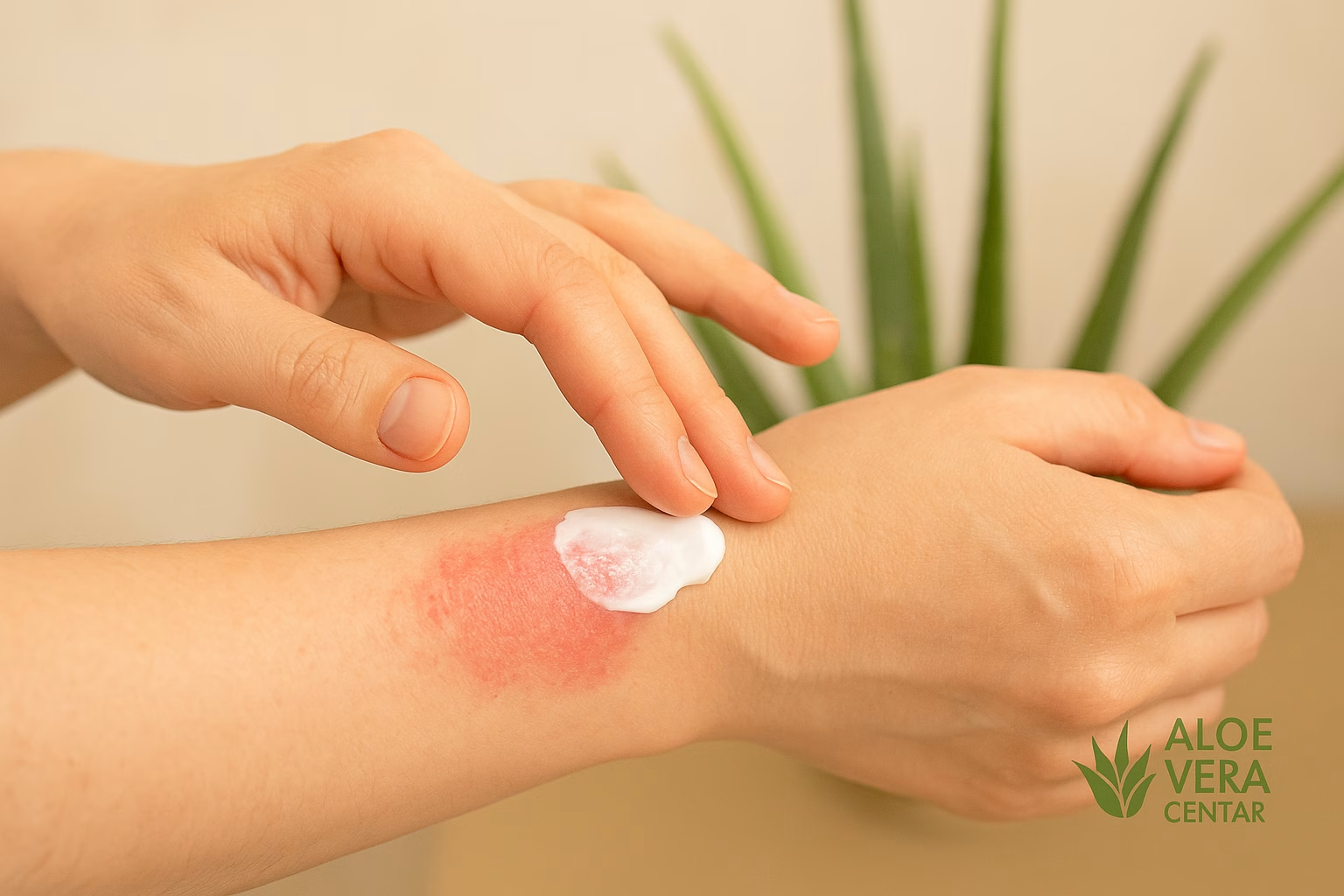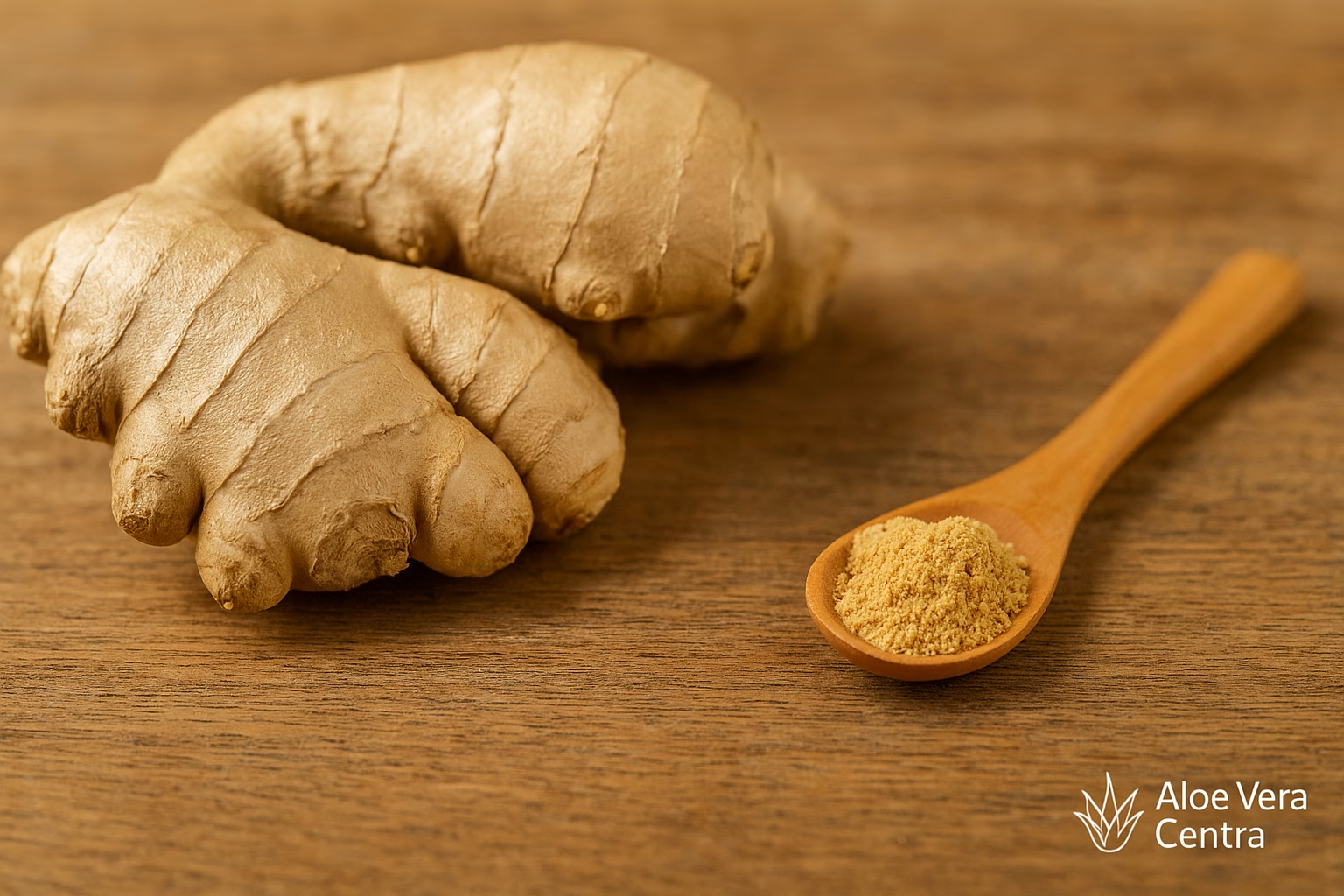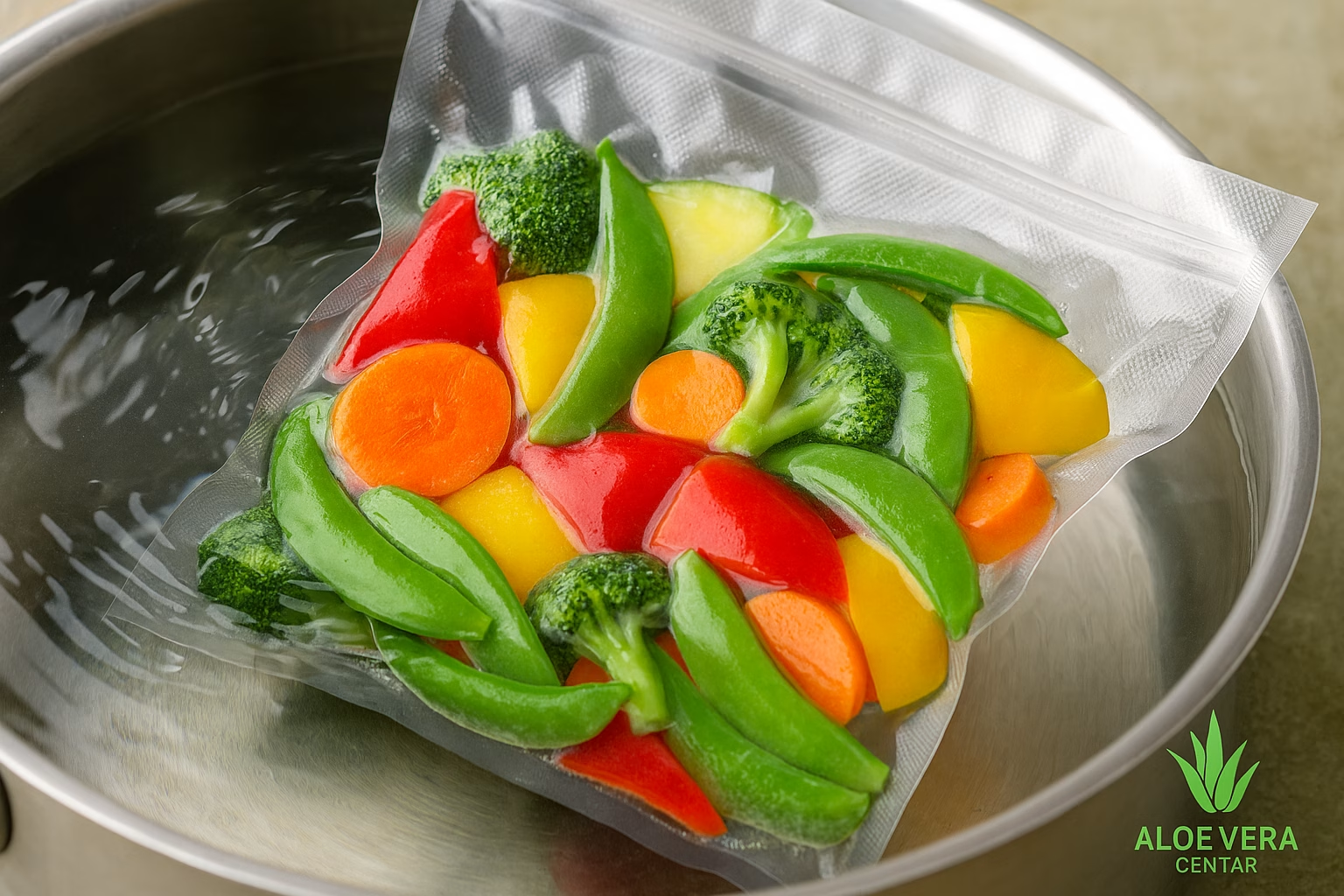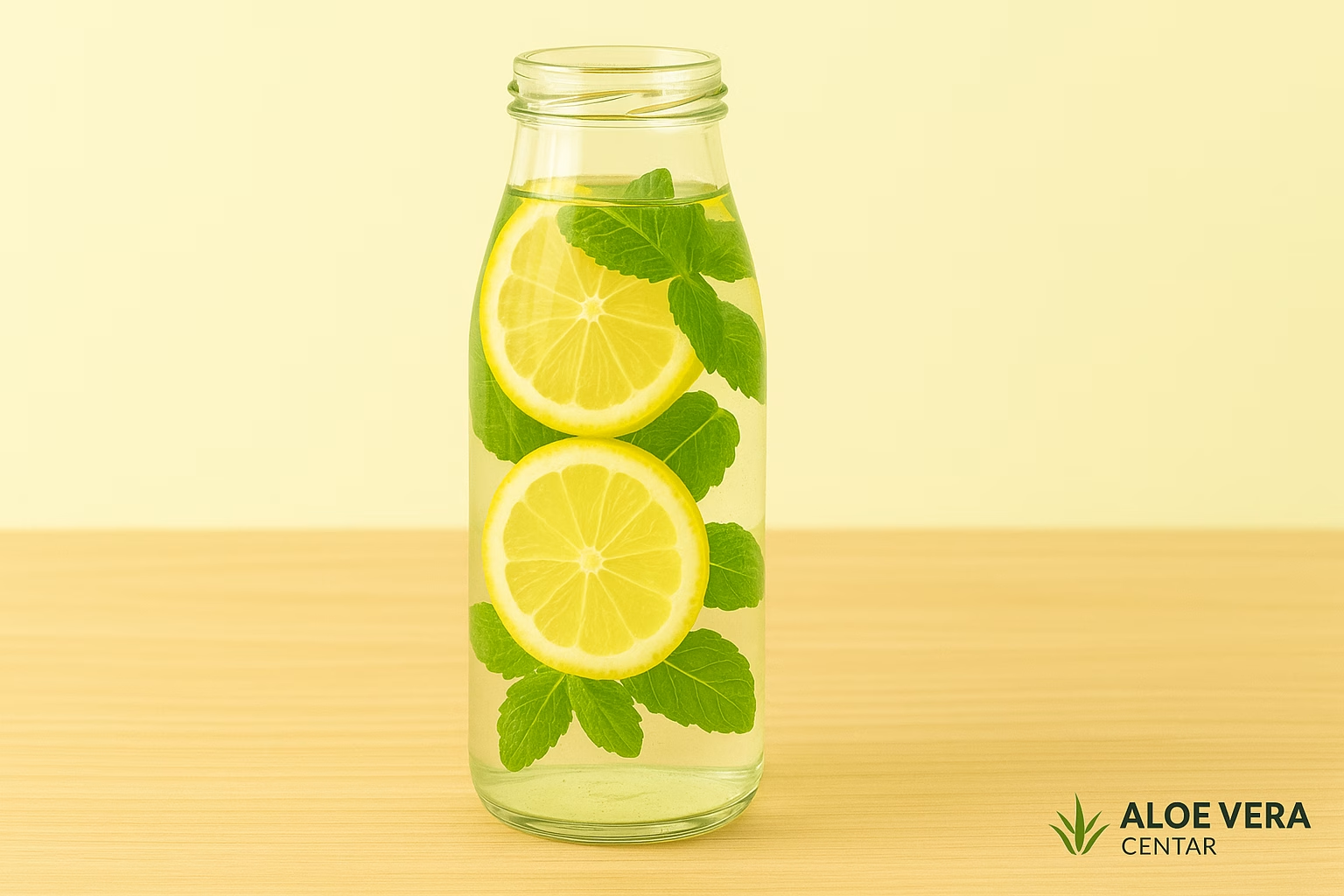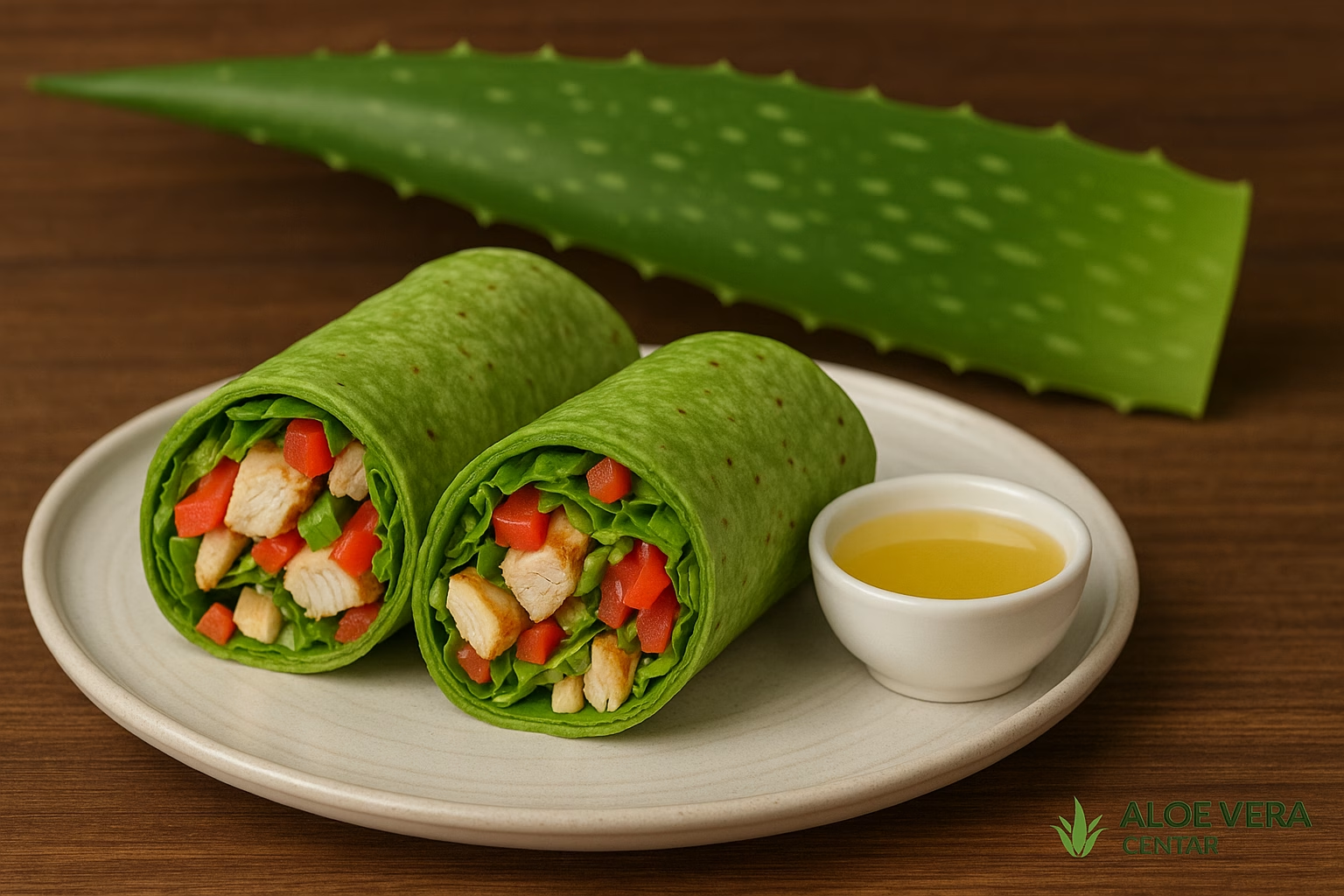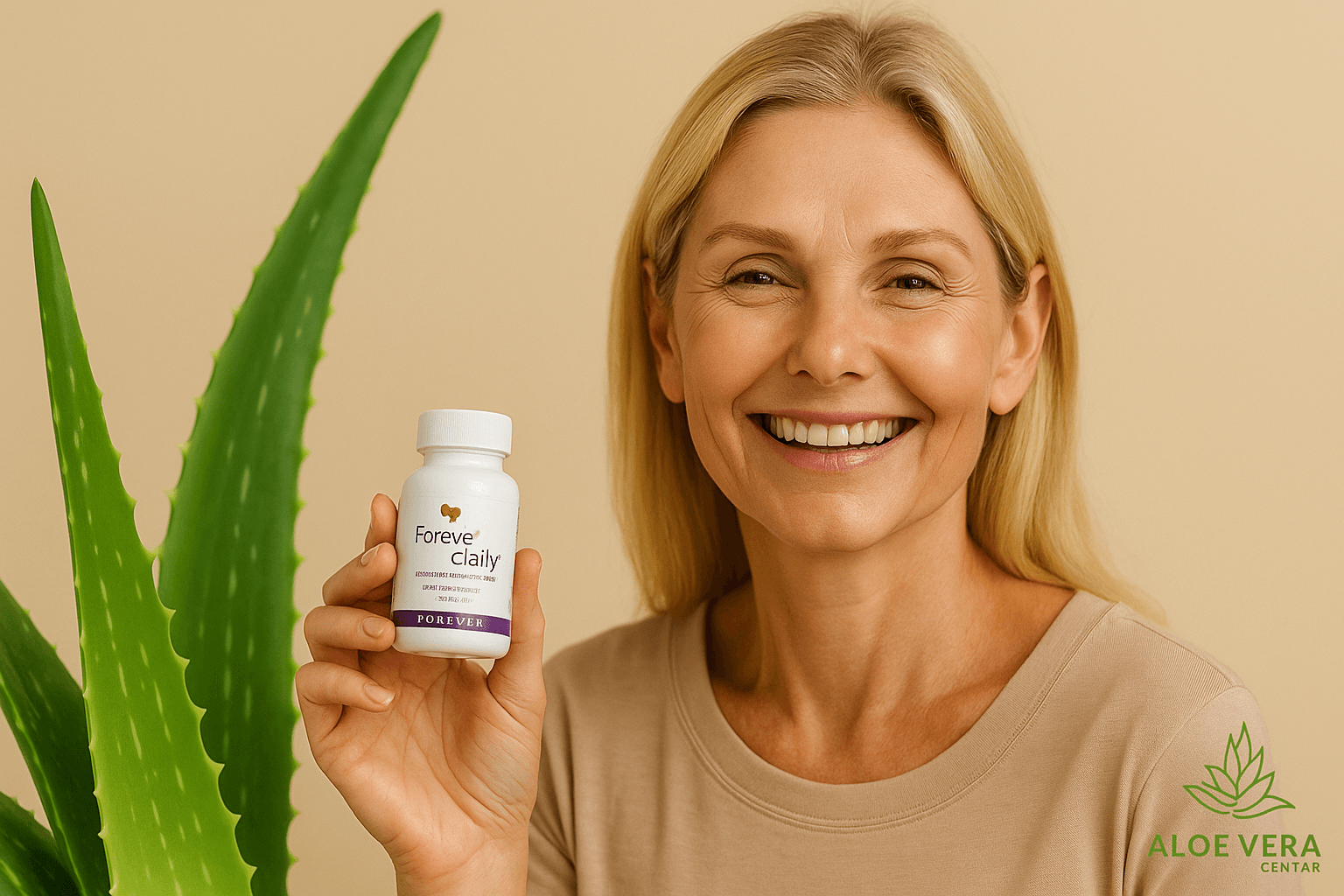
Homemade aloe vera mask for dandruff-prone hair: natural recipe and tips
How to make a homemade aloe vera mask for dandruff-prone hair
We all experience dandruff or an irritated scalp at some point. It can be especially frustrating when white flakes start to appear on dark clothes or when we feel an unpleasant itch throughout the day. In search of a solution, many people reach for harsh shampoos or temporary treatments, but there is also a more natural approach that can offer long-term results. This is where a homemade aloe vera mask for dandruff-prone hair comes into play. Known for its anti-inflammatory and soothing properties, aloe vera, when combined with other natural ingredients, can help restore balance to the scalp and give hair a healthy shine. Find out why aloe vera works so well, what its ideal “partners” are in a hair mask, and how to easily prepare it at home.
Why choose aloe vera for dandruff-prone hair care?
Aloe vera has long been known as a plant with multiple beneficial effects, especially on the skin and hair. Its gel, found in the center of its thick leaves, is rich in vitamins (A, C, E and B12), minerals (such as zinc, magnesium and calcium), enzymes and amino acids. These ingredients help to hydrate the hair, soothe an irritated scalp and stimulate hair growth. When it comes to hair prone to dandruff , aloe vera’s properties help in the following ways:
- Anti-inflammatory effect: Aloe vera can reduce redness and itching of the scalp, which are common symptoms of dandruff.
- Soothing effect: Aloe vera gel creates a protective film on the scalp, preventing further drying and irritation.
- Sebum regulation: Excessive sebum secretion can create a favorable environment for dandruff, and aloe vera helps maintain a better balance.
- Antimicrobial properties: Research shows that aloe vera can act on bacteria and fungi, which are one of the causes of dandruff.
Precisely because of this combination of favorable effects, many experts and lovers of natural cosmetics highlight aloe vera as one of the best ingredients for making homemade hair masks. You can read more about the effects of aloe vera on hair and scalp in this article on natural hair care with aloe vera on our site.
What causes dandruff and how to recognize it?
Before we dive into making a homemade aloe vera mask for dandruff-prone hair , it’s important to understand what exactly causes dandruff. Dandruff is actually a buildup of dead scalp cells that slough off quickly, and the most common causes are:
- Excessive sebum production: When the scalp produces too much oil, it creates an ideal environment for the Malassezia fungus, often associated with dandruff.
- Dry scalp: A pronounced lack of sebum can lead to dryness and flaking of the skin.
- Inadequate nutrition: Lack of zinc and B vitamins can worsen the problem.
- Stress: Hormonal changes due to stress negatively affect the skin and scalp.
- Using harsh products: Frequent washing of hair with shampoos containing harsh sulfates and parabens can disrupt the scalp microbiome.
Symptoms include white or yellowish flakes on the scalp, itching, redness, and a feeling of tightness. In more severe cases, sores or inflammation on the scalp may even appear. In any case, a proper approach to care is key to long-term dandruff management.
Benefits of making your own hair mask
Why bother making homemade masks when there are hundreds of commercial products on the market? There are several reasons:
- Control of ingredients: You choose exactly what goes into your mask yourself, avoiding artificial colors, parabens and aggressive chemicals.
- Freshness and efficacy: Freshly prepared natural ingredients usually retain more active compounds.
- Adapt to your own needs: You can experiment with additives like honey, tea tree, essential oils, or yogurt – depending on what works best for your hair.
- Eco-friendly approach: Homemade recipes often come without unnecessary plastic packaging or added preservatives.
- Economy: In the long run, making your own masks can be more affordable than buying premium products.
In the case of specific problems, such as very severe dandruff or dermatitis, a natural approach can complement medical therapy (as advised by a doctor or dermatologist). However, most people experience improvements in their scalp and overall hair health when they turn to natural formulas.
How to make a homemade aloe vera mask for dandruff-prone hair: basic recipe
It’s time to learn the most important thing – how to prepare a homemade aloe vera mask for dandruff-prone hair . For the basic recipe, you will only need a few ingredients:
Key ingredients
- Fresh aloe vera gel (about 2-3 tablespoons): If you have your own aloe vera plant, pick a ripe leaf, wash it, and extract the clear gel. Alternatively, you can use store-bought aloe vera gel (make sure it’s as pure as possible and free of added perfumes and dyes).
- Additional moisturizing oil (1 tablespoon): Coconut, olive or jojoba oil goes well with aloe vera and helps nourish the scalp.
- Lemon juice (about 1 teaspoon): Lemon juice helps balance the pH of the scalp and has a natural antiseptic effect.
- Natural antibacterial supplement (optional) : This can be a few drops of tea tree or lavender essential oil, which are known to be effective against fungi and bacteria.
Preparation process
- Preparing the gel: If using a fresh aloe vera leaf, cut off a section of the leaf, remove the prickly edges, and peel the skin. Extract the clear gel and chop or blend it.
- Mixing the ingredients: Add the desired amount of aloe vera gel (2-3 tablespoons), oil of choice (1 tablespoon), and lemon juice (1 teaspoon) to a bowl. If desired, add 2-3 drops of tea tree or lavender essential oil.
- Mix well: You can use a fork, spoon, or even a small hand mixer, until you get a smooth mixture.
- Hair preparation: Divide your hair into sections to make it easier to apply the mask, especially to the scalp. It is preferable for your hair to be dry or only slightly damp.
- Application: Apply the mask with your fingers or a brush, focusing on the scalp and problem areas. Then distribute it to the ends of the hair.
- Leave the mask on for 20-30 minutes. For a more intense effect, you can wrap your hair in plastic wrap or put a shower cap over it with a towel, which creates a gentle heat that helps the ingredients penetrate deeper.
- Rinse and wash your hair: After the mask has set, rinse it with lukewarm water and wash your hair with a mild, natural shampoo (preferably one that is sulfate and paraben free).
After using this mask, your hair should be soft and nourished, and your scalp should feel soothed. For lasting results, it is recommended to repeat the treatment once a week or every two weeks, depending on the severity of your dandruff problem.
Additional variations and performance enhancers
If you want an even stronger effect or to “complicate” things a bit with new ingredients, you can try the following variations:
Aloe vera and honey
Honey is a natural humectant, meaning it attracts and retains moisture in your hair. It also has antimicrobial properties. Mix 2-3 tablespoons of aloe vera gel with 1 tablespoon of honey, a few drops of coconut oil, and a dash of lemon juice. The result is a mask that deeply moisturizes your scalp and hair ends, while reducing dandruff.
Aloe vera and yogurt
Yogurt contains lactic acid, which can gently exfoliate the scalp and remove dead skin cells. Mix 2 tablespoons of aloe vera gel with 2 tablespoons of plain yogurt. This combination helps balance the pH and relieve itching. Leave the mask on for 15-20 minutes before rinsing.
Aloe vera and green tea
Green tea is rich in antioxidants that can soothe irritation and also inhibit the growth of harmful fungi on the scalp. Brew a cup of green tea, let it cool, then mix 3 tablespoons of the tea with 2 tablespoons of aloe vera gel. This will create a light liquid mask (or rinse) that you can apply to your hair and scalp after washing.
Combination with Forever Living products
Although making a homemade mask is a wonderful solution, many people like to supplement their care with certified products that have confirmed quality. The Forever Living offer, for example, includes:
- Aloe-Jojoba Shampoo and Aloe-Jojoba Conditioner: This line of hair products harnesses the synergy of aloe vera and jojoba, gently cleansing and nourishing the scalp.
- Forever Aloe Vera Gel: If you don’t have an aloe vera plant at home, you can use this certified gel as a base in your homemade mask.
- Forever Bee Propolis: Although not directly a hair product, propolis can boost the body’s overall resistance; hair problems sometimes reflect the body’s internal state.
- Aloe First Spray: Great for quickly hydrating your scalp between washes, especially if you have a dry scalp.
If you want to try some of these and get a discount , you can discreetly visit an official Forever store and enjoy the benefits. Sometimes even the smallest change in your routine can have a noticeable effect, especially when you combine a homemade mask with quality, natural shampoos.
Useful tips for fighting dandruff
In addition to the homemade aloe vera mask for dandruff-prone hair , there are other habits that can speed up the resolution of this unpleasant problem:
- Wash your hair regularly, but not too often: Over-washing can irritate your scalp. Focus on finding a balance – for some, that’s every 2-3 days, for others, once a week.
- Use mild shampoos: Shampoos without sulfates and parabens dry out the scalp less.
- Avoid hot water: Overheated water can further increase itching and cause even more peeling.
- Limit stress: Stress can make dandruff worse. Introduce relaxation techniques, such as yoga or walks in nature.
- Proper nutrition: Get enough zinc, B vitamins, and healthy fats (e.g. Forever Arctic Sea as a dietary supplement) for healthy hair and scalp.
- Brush your hair regularly: Gentle brushing stimulates circulation in the scalp and removes excess flakes before washing.
External and internal factors: balanced diet and supplements
It’s worth noting that dandruff is often a reflection of the state of the body from the inside. A deficiency in certain nutrients, such as iron, zinc or vitamin D, can lead to a dry and dandruff-prone scalp. That’s why it’s important to consume enough fruits, vegetables, whole grains and protein, and to check your vitamin and mineral levels (for example, with blood tests if dandruff becomes a chronic problem).
Nutritional supplements, such as Forever Daily (multivitamin-multimineral formula) or Forever Nature-Min , can help complete the diet, and Forever Aloe Vera Gel can support better digestion and detoxification of the body. When digestion is regulated, the body more efficiently absorbs key nutrients for hair and skin health. For additional information, you can take a look at the article on the benefits of Forever Aloe Vera Gel on our website.
Possible side effects and precautions
Although a homemade aloe vera mask for dandruff-prone hair is generally very safe and suitable for most people, there are a few precautions:
- Aloe Vera Allergy: Although rare, some people may be sensitive to aloe vera. If you notice redness, rash, or itching on your skin, discontinue use.
- Overuse of lemon: Lemon juice can be harsh if used excessively. Be careful with the dosage, especially if you have a sensitive scalp.
- Interactions with essential oils: Tea tree and lavender essential oils are safe when used in small amounts, but can cause irritation at higher concentrations.
- Preserving freshness: Homemade masks do not contain preservatives, so it is best to prepare them immediately before use and not store them in the refrigerator for more than a few hours.
FAQ (Frequently Asked Questions)
1. How often should I apply a homemade aloe vera mask for dandruff?
For most people, using the mask once a week or once every two weeks is enough. If your scalp seems to be more severely affected by dandruff, you can start more intensively (e.g. once a week), and later reduce to every 10-14 days.
2. Can I use the mask if my hair is colored?
Yes, aloe vera is very gentle and usually doesn’t damage hair color. However, if you use lemon juice in a mask, keep in mind that it can slightly lighten your hair, especially if you expose it to the sun. This is usually negligible, but be aware of the possibility.
3. What is the best oil to combine with aloe vera in a mask?
It depends on your hair type. Coconut oil is great for dry hair, olive oil for coarse and dehydrated hair, while jojoba oil is suitable for oily scalps (because its structure is most similar to natural sebum). Feel free to experiment and see what suits you best.
4. How quickly can I expect results?
In milder forms of dandruff, improvement can be seen after just 2-3 applications of the mask, especially in reducing itching and redness. For the long-term disappearance of flakes and permanent balance of the scalp, it usually takes several weeks of regular treatment and the adoption of healthy habits.
Conclusion
Dandruff is a common and annoying problem, but with proper care and a selection of proven natural ingredients, it can be kept under control. A homemade aloe vera mask for dandruff-prone hair provides a safe and effective way to hydrate and soothe the scalp, reducing unwanted flakes and itching. Combined with a balanced diet, regular hair hygiene, and supplements that support overall health, this is one step closer to silky, shiny, and, above all, healthy hair.
If you’re ready to try certified aloe vera hair products, from shampoos to supplements, explore special offers and take advantage of the benefits. Sometimes, it’s that combination – a homemade mask and proven products – that’s the key to achieving the best results.
This content is not a substitute for professional medical advice. If you are experiencing long-term or serious scalp problems, please consult a dermatologist or other professional.

